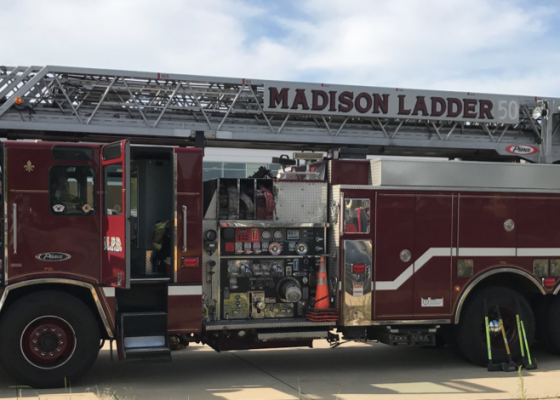Curricula
A Simulation-Based Curriculum for the Development of Leadership and Communication Skills for Emergency Medicine Residents
DOI: https://doi.org/10.21980/J8R33KThis educational intervention was developed to provide physician learners a safe learning environment to practice critical leadership skills, including overcoming team member limitations, navigating power struggles, addressing team morale, and managing disruptive team members.
An OSCE Evaluation Tool for the Assessment of Emergency Medicine Resident Progression Performance of ACGME Patient Case and Interpersonal Communication Milestones
DOI: https://doi.org/10.21980/J8J63ROur goal was to create a standardized OSCE based formative assessment tool that could be deployed with minimal resource utilization. The purpose of our tool is to provide data regarding Emergency Medicine Residents’ performance in ACGME patient care milestones as they progress longitudinally through their residency.
A Model Curriculum for an Emergency Medical Services (EMS) Rotation for Emergency Medicine Residents
DOI: https://doi.org/10.21980/J8DD0FThe aim of this curriculum is to provide a robust learning experience for EM residents around prehospital care and EMS that fulfills the ACGME requirements and which can be easily replicated and implemented in a variety of EM residency training programs.
Novel Emergency Medicine Curriculum Utilizing Self-Directed Learning and the Flipped Classroom Method: Obstetric and Gynecologic Emergencies Small Group Module
DOI: https://doi.org/10.21980/J8DK9KWe aim to teach the presentation and management of obstetric and gynecologic emergencies through the creation of a flipped classroom design. This unique, innovative curriculum utilizes resources chosen by education faculty and resident learners, study questions, real-life experiences, and small group discussions in place of traditional lectures. In doing so, a goal of the curriculum is to encourage self-directed learning, improve understanding and knowledge retention, and improve the educational experience of our residents.
Novel Emergency Medicine Curriculum Utilizing Self-Directed Learning and the Flipped Classroom Method: Head, Eyes, Ears, Nose and Throat Emergencies Small Group Module
DOI: https://doi.org/10.21980/J8PW5NWe aim to teach the presentation and management of HEENT emergencies through the creation of a flipped classroom design. This unique, innovative curriculum utilizes resources chosen by education faculty and resident learners, study questions, real-life experiences, and small group discussions in place of traditional lectures. In doing so, a goal of the curriculum is to encourage self-directed learning, improve understanding and knowledge retention, and improve the educational experience of our residents.
Novel Emergency Medicine Curriculum Utilizing Self-Directed Learning and the Flipped Classroom Method: Psychiatric Emergencies Small Group Module
DOI: https://doi.org/10.21980/J8DP7VWe aim to teach the presentation and management of psychiatric emergencies through the creation of a flipped classroom design. This unique, innovative curriculum utilizes resources chosen by education faculty and resident learners, study questions, real-life experiences, and small group discussions in place of traditional lectures. In doing so, a goal of the curriculum is to encourage self-directed learning, improve understanding and knowledge retention, and improve the educational experience of our residents.
Novel Emergency Medicine Curriculum Utilizing Self-Directed Learning and the Flipped Classroom Method: Genitourinary Emergencies Small Group Module
DOI: https://doi.org/10.21980/J89S56We aim to teach the presentation and management of genitourinary emergencies through the creation of a flipped classroom design. This unique, innovative curriculum utilizes resources chosen by education faculty and resident learners, study questions, real-life experiences, and small group discussions in place of traditional lectures. In doing so, a goal of the curriculum is to encourage self-directed learning, improve understanding and knowledge retention, and improve the educational experience of our residents.
Emergency Medicine Curriculum: Complications of Pregnancy Small Group Module
DOI: https://doi.org/10.21980/J8TS67We aim to teach the presentation and management of pregnancy complications through interactive teaching during small group discussions concerning patient cases. This curriculum utilizes resources chosen by education faculty, study questions, actual experience, and small group discussions in place of a traditional lecture-based format. In doing so, a goal of the curriculum is to encourage self-directed learning, improve understanding and knowledge retention, improve the educational experience of our residents, and allow assessment by the faculty concerning the knowledge base and ability of the residents.

